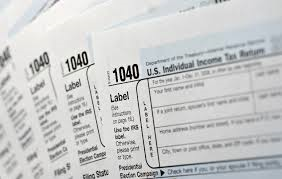 Every year, the calendar adds another digit to the year as we turnover the month from December to January. Many of us make the dreaded and oft-abandoned resolution to become more organized in our financial lives – yet, somehow, March Madness invariably means more than basketball brackets. It becomes an annual challenge to organize our financial records, both personal and business and get our taxes filed on time. It is likely my accountant is reading this right now and laughing to himself as I routinely ask for an extension for my corporate taxes for the very same reason.
Every year, the calendar adds another digit to the year as we turnover the month from December to January. Many of us make the dreaded and oft-abandoned resolution to become more organized in our financial lives – yet, somehow, March Madness invariably means more than basketball brackets. It becomes an annual challenge to organize our financial records, both personal and business and get our taxes filed on time. It is likely my accountant is reading this right now and laughing to himself as I routinely ask for an extension for my corporate taxes for the very same reason.
To help you get ahead of the tax game, here are 4 tips to get you get ahead of your own personal March Madness.
Make the Fast Break
Don’t wait until the April 14th to begin the tedious, often arduous, process of reconciling your expenses, revenues and other key elements for your tax planning. If you adopt the Boy Scout motto of “Be Prepared”, you will be in a much better position to maximize your return. By entering your key financials on a daily/weekly or monthly basis, you will find the task to be less overwhelming. You will also be more likely to increase accuracy by omitting the possibility of human error or forgetting transactions that could save on your tax bill.
Practice the Skill Drills
While you may rely on a tax planning professional to actually file your taxes, s/he is not you – you need to understand the basics of small business deductions in order to assist your accountant in making the most of your return. In the ideal world, your tax professional will be aware of all of the major aspects of your business and you may have consulted with him/her before you made major decisions that would impact the financial health of the business. But they are only human; more than likely, they are juggling dozens of clients simultaneously, so you need to be your own advocate and make sure they are aware of all that has occurred in your business in that tax year. No one is going to care more about your business than you.
Make the Shot before the Final Buzzer
There are hundreds of different tax deductions and tax credit filing forms, many of which have deadlines by which they must be filed. This doesn’t include any ancillary forms to these filings, which may have their own deadlines. Keep track of important dates by setting reminders on your calendar; check that calendar frequently to ensure you know what due dates are approaching and those that are coming up. The last thing you want to do is miss a deadline for a filing that could provide your business with a huge deduction or credit.
Hire a Great Coach
Investing in your business by hiring a professional who is aware of the myriad of annual changes to the tax code is well worth it. Deductions and credits change every year, so working with a professional that keeps up to date on these variances can maximize your deductions and minimize any errors associated with doing your own taxes. This way you can focus on what you do best – managing your business.
Don’t forget – you don’t get into trouble with the IRS by not paying your taxes. You get in trouble by not filing your taxes. To help you with your filing, here are some important reminders for tax season.
2016 Tax Return Deadlines
| Tax Day Date | Type of Income Tax Return | Filing Deadline/Due Date Description |
| April 18*, 2017
*This is NOT a typo. |
2016 Federal Tax Return | Tax Day for Tax Year 2016 – Filing deadline and due date for Federal Income Tax Returns. |
| State Tax Return Deadlines | 2016 State Tax Return | Due dates for State Income Tax Returns vary by state. Check your local state for the applicable deadline. |
| October 16, 2017 | 2016 Federal Tax Return | Last day to efile a 2016 Federal Income Tax Return for Tax Extension filers. |
Why is the 2017 Tax Day April 18?
The regular tax return filing deadline is April 15. However, due to April 15 being on a Saturday and the Washington D.C. Emancipation Day holiday being observed on April 17 instead of April 16, 2017, Tax Day is on the following Tuesday.
There’s Still Time to Contribute to an IRA for 2016
There’s still time to make a regular IRA contribution for 2016! You have until your tax return due date (not including extensions) to contribute up to $5,500 for 2016 ($6,500 if you were age 50 by December 31, 2016). For most taxpayers, the contribution deadline for 2016 is April 18, 2017.
You can contribute to a traditional IRA, a Roth IRA, or both, as long as your total contributions don’t exceed the annual limit (or, if less, 100% of your earned income). You may also be able to contribute to an IRA for your spouse for 2016, even if your spouse didn’t have any 2016 income.










